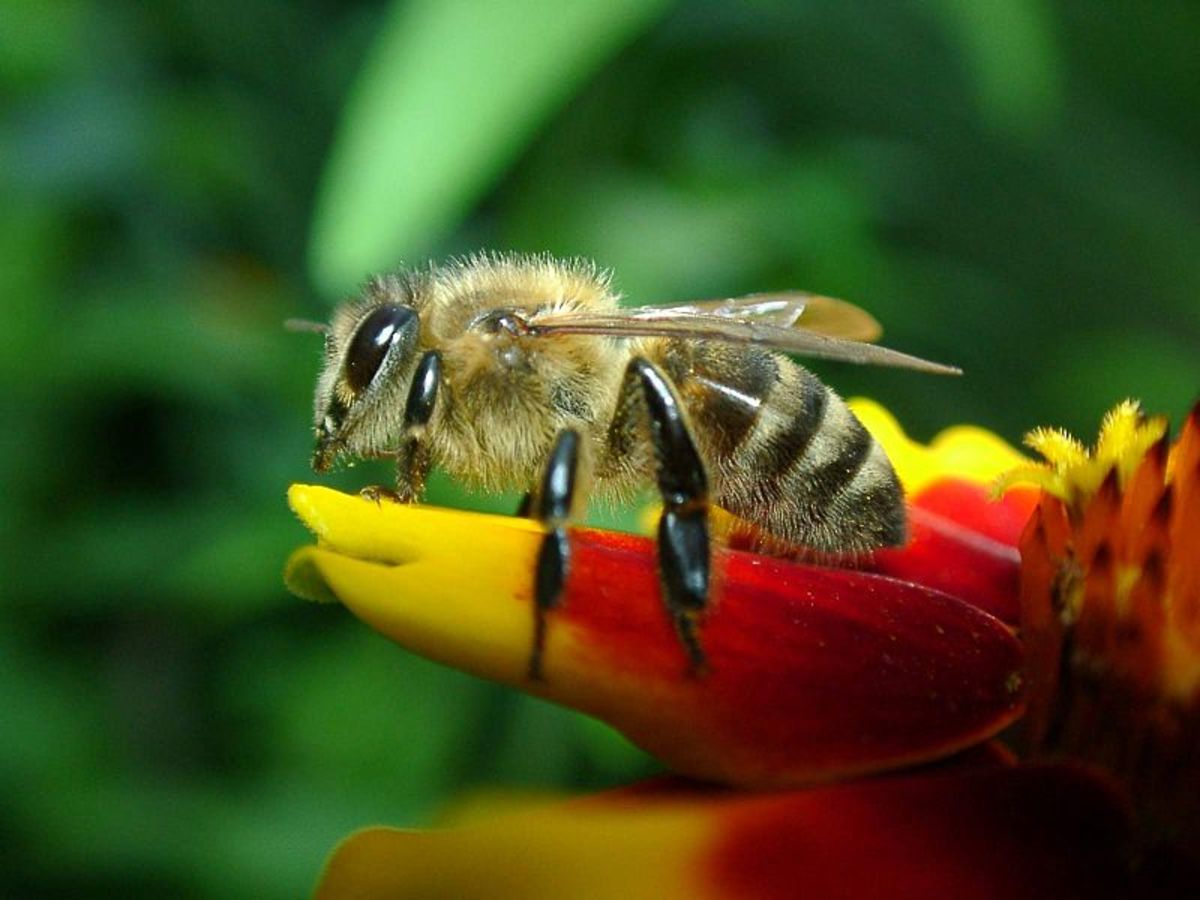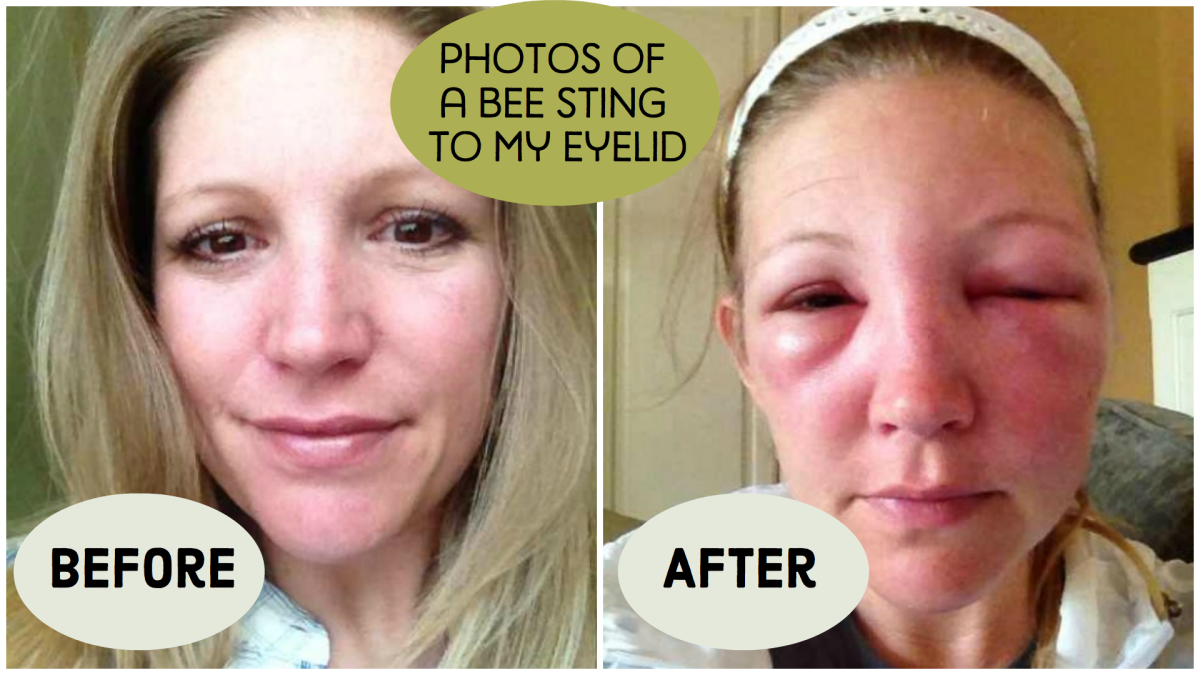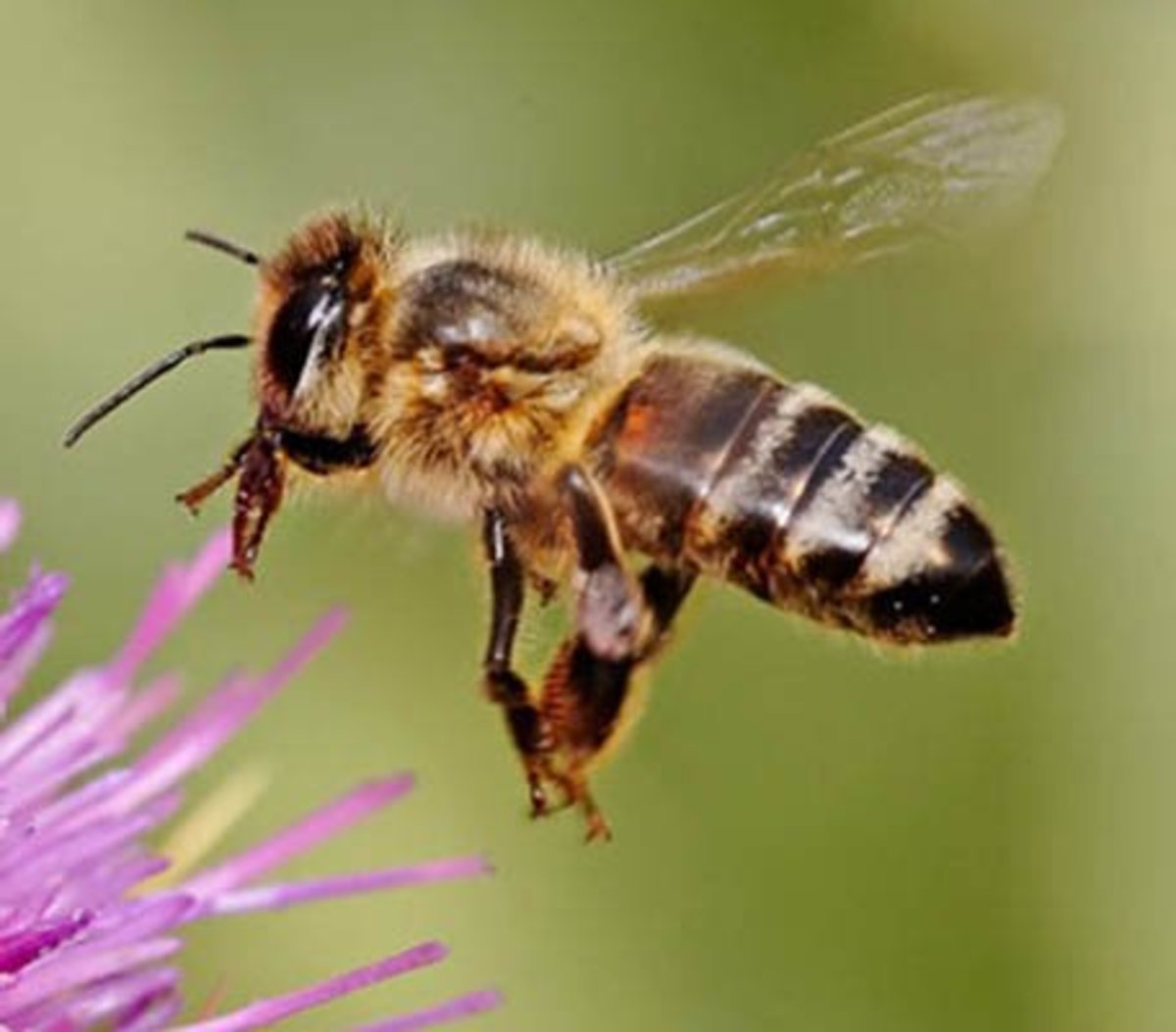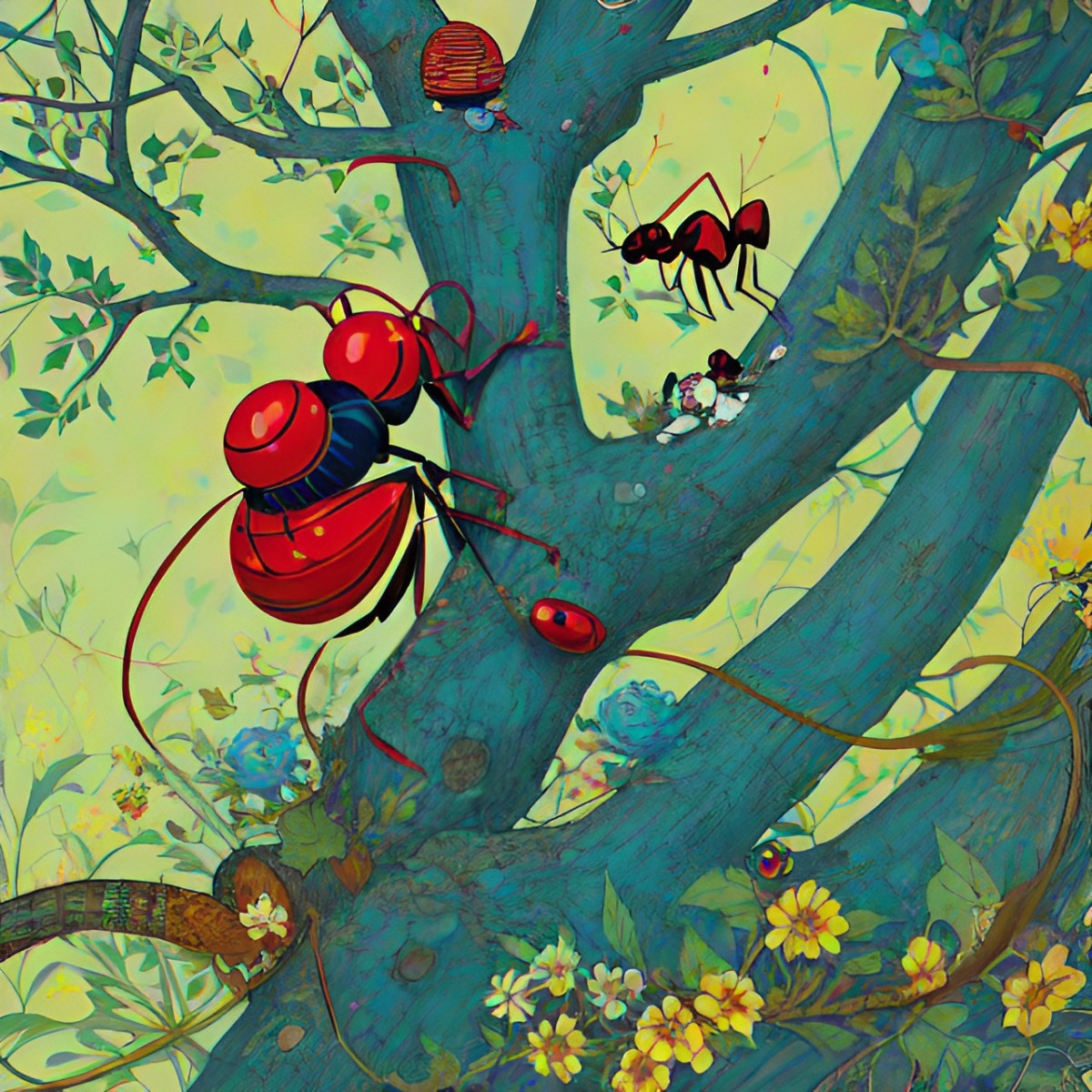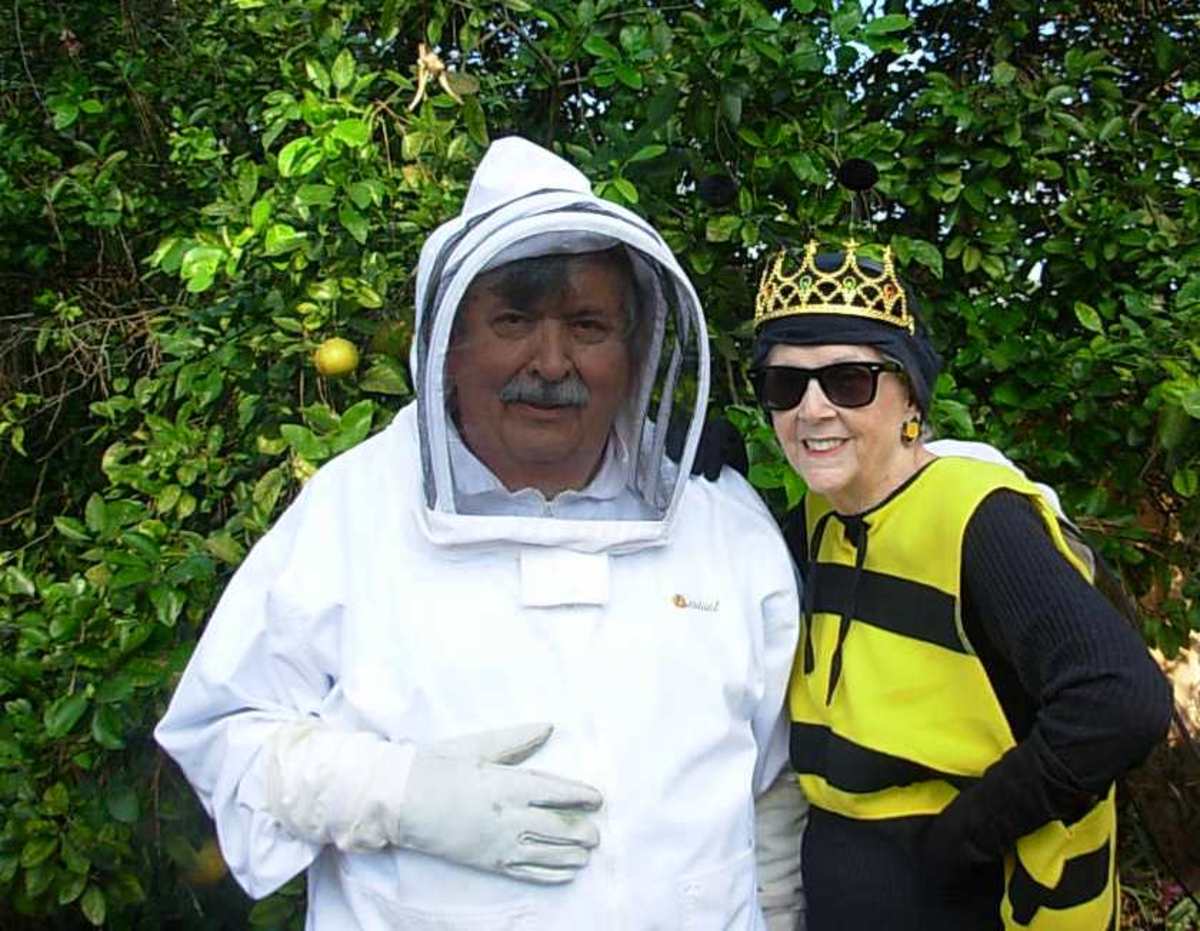King bees and queen bees : The mythology of life in the beehive
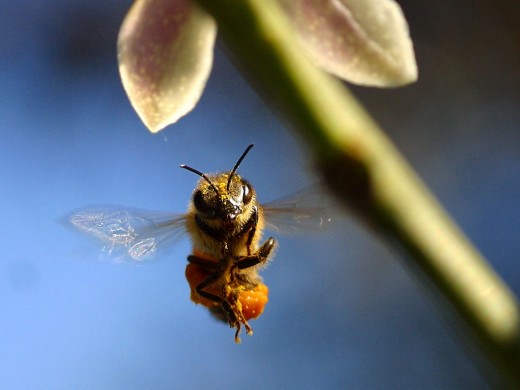
Beekeeping for feminists
Chapter 1 – If Bees Could Read
‘Bees don’t read the books’ is the favourite lament of the beekeeper when things happen in the hive that run contrary to their expectations. We can only be happy for the sake of the bees that this is true. Instead of getting on with life, literate bees would have spent the last two millennia in total gender confusion. To put it mildly they wouldn’t know if they were Arthur or Martha.
In his treatise on beekeeping (first century AD) Virgil claimed bees to be living a perfect chaste life. This turned out to be very convenient for the nuns who were happy to keep bees and the monks who were happy to eat their products, safe in the knowledge that nothing untoward of a physical nature sullied the honey for their toast or the obligatory beeswax – symbol of the body of Christ – for their candles.
Bees henceforth came to represent a model of perfection in civil and social organisation, and out of convenience the traditional theory that bees reproduce asexually, a characteristic that associated them in the middle ages with the Virgin Mary, went unchallenged for some time. Elements of class crept into the hive when a single large bee was mistakenly described as the king bee, the ruler of the hive, and an assumed second large bee was his queen and mother to all the babies without having anything to do with their production or nurturing – it would have been beneath her to have behaved in such a disgusting way – all that was done by the worker bees! It wasn’t until the sixteenth century that it was suggested that the king bee was female and laid all the eggs, and the seventeenth that all the workers were female. One twentieth-century commentator made the claim that, had the truth about the gender of the bees never been discovered, women would never have thought of campaigning for the vote. Hummmm!
Buzzin’ around your hive
Probably as well for the bees that they don’t listen to rock music either, as the myth of the king bee as perpetuated in the twentieth century by Muddy Waters, Mick Jagger, Pink Floyd and the Grateful Dead among others, swept away any lingering pretensions of chastity the bees might have been holding on to. Sting you bad ….
In reality the nearest thing to a king bee in the hive are the drones who in high season hang around in a region in the sky called the ‘drone congregation area’, the image of which can only conjure up P G Wodehouse’s ‘Drone’s Club’ with Bertie Wooster and his chums Gussie Fink-Nottle, Stilton Cheesewright and the others, haplessly hanging out there on summer days amusing themselves by throwing bread rolls at each other until they are bagged by some random female. In fact the way they behave towards women in their circle seems to be to avoid them as much as possible, sensible in view of the fact that the real drones who get lucky enough to mate with the queen die after the event. The drones who are not among the 12 to 15 or so who fertilise the queen, are thought to actually help around the hive a bit, maintaining calm and helping with temperature regulation.
The poor creatures, however, are only tolerated in the hive until early autumn when they are ousted by the workers. The workers (female by the way) who don’t want to have to feed them all winter usher them out of the hive with the matter of fact briskness of Bertie’s Aunt Agatha, often giving their wings a good chewing on the way to make sure they get the message. The king bee would probably find himself getting the bum’s rush along with the drones since his dubious (even bogus) talents would no longer be required.
Queen bee syndrome and other allusions
So the king bee is little more than a symbol of male arrogance, strutting his stuff in a parallel universe. Should the queen bee ever have the time, energy or vanity to Google herself she would find that she achieves over 7 million hits. Should she go further she will find that she is the mother of all bees, and that she also has a syndrome to her name which is applied to that powerful competitive (but insecure) upper management office ‘beeatch’, who needs to block the progress of the female minions in the office/hive. A queen bee is also the good looking manipulative leader of school cliques, the members of which will victimise and cast out the ones she dislikes. (How unlike the homelife…. )
Meanwhile our fecund queen bee returns from her (one and only) outing to take up permanent residence in the hive where she is reputed to lead the life of Mrs Riley, pampered and pandered to by workers. Au contraire, the queen, after her brief excursion to the drone layer up there in the sky pays for her fun by being hive bound for anything up to five years, laying up to 2000 eggs a day in the season. After that, when her pheromones, the hormones that keep the hive together, begin to weaken, she will be ejected from the hive either by the workers who have created another queen, or by the evil beekeeper who replaces her, often squishing her unceremoniously between finger and thumb, to maximise profits (and yes, many of these are women).
But whatever the reality within the mysterious hive – the supposed qualities of the bee community have been construed by humans over the centuries in any number of ways. In the political sphere, the beehive has been claimed as truly republican in 18th century France, perfectly socialist in England in the late nineteenth and later, in the twentieth century, has been seen as a totalitarian regime with an all-powerful queen as head supported by a Stasi-like team of workers, policing the colony and executing interlopers and wrongdoers. But more of that in my next chapter….
PS – A Warning – There must be very few people who have not heard about the ‘plight of the bees’ panic – how they’re all dying out and will be taking us with them when they go. Many people would like to help by some kind of donation and several ‘Adopt a Bee’ schemes have sprung up. If you are interested in investing in one of these schemes just make sure where your money is going. One bona fide scheme in the UK is Adopt-a-Beehive run by the British Beekeeping Association (BBKA), with sponsorship from Saga. An investment in this will definitely go to fund bee research and education. Some unscrupulous beekeepers (yes, they do exist) will simply use your investment for their own profit.

